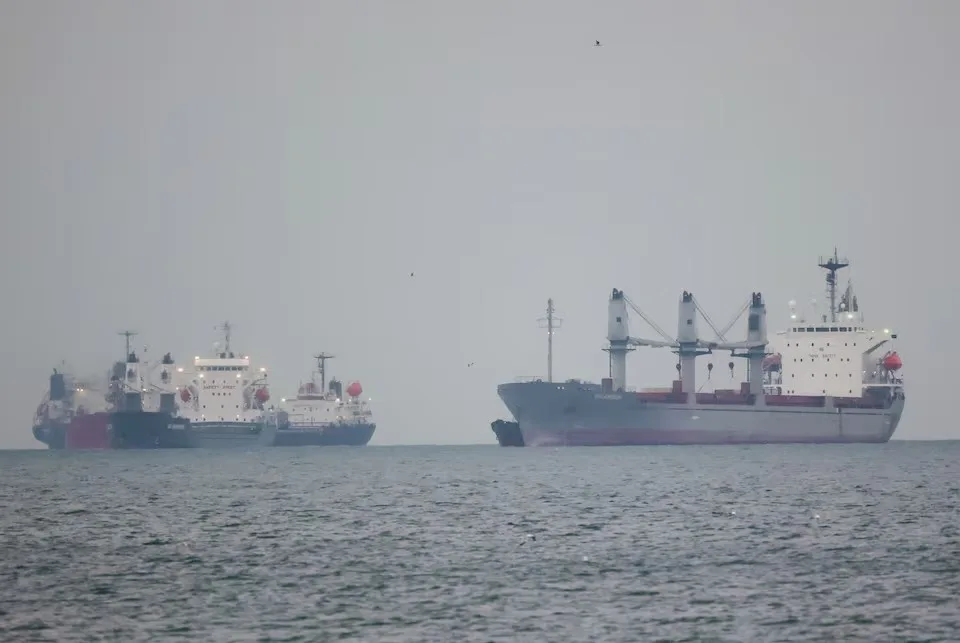Geopolitical Strife Could Cost Global Economy $14.5 Trillion Over 5 Years - Lloyd's of London

Lloyd’s of London has issued a warning that global geopolitical conflicts could lead to a staggering $14.5 trillion loss for the world economy over the next five years. The loss would stem primarily from disruptions in critical supply chains and damage to vital infrastructure, which could also severely affect shipping lanes. The insurance market emphasized that such a scenario represents a significant threat to the global economy, especially given the current geopolitical tensions.
This assessment comes as the wars in Ukraine and Gaza have already caused significant disturbances in shipping routes through the Black Sea and Red Sea. Both of these areas are critical for global trade, and any further conflict could lead to serious supply chain disruptions.
Are you looking for the best trading platform? Sign-up to the best trading platform for you for FREE. Takes 2 mins.
The Threat to Global Trade Routes
According to Lloyd’s, approximately 80% of global imports and exports are transported via sea, with over 11 billion tons of goods constantly in transit. This underscores the severe consequences that could result from disrupted shipping lanes due to geopolitical conflicts. Given how integral maritime routes are to the global economy, any major blockages or damage to infrastructure would quickly ripple across supply chains, leading to far-reaching economic consequences.
Lloyd’s highlights that geopolitical risks are considered “systemic” threats—those with a low likelihood but high impact. While these risks are rare, when they do occur, they can have devastating consequences for global trade and economic stability.
Research into Systemic Risks
Lloyd’s also partnered with the Cambridge Centre for Risk Studies to research other potential systemic risks, such as cyberattacks and extreme weather events. In recent years, these threats have gained prominence due to their capacity to cripple infrastructure, disrupt financial systems, and halt critical trade flows.
In the context of these systemic risks, Lloyd’s highlighted the importance of international cooperation and strategic planning to mitigate potential damage. Given the current state of global geopolitics, including rising tensions in the South China Sea, the ongoing Russia-Ukraine war, and instability in the Middle East, there is an increased likelihood of future disruptions that could have severe economic consequences.
Recent Geopolitical Tensions Impacting Global Economy
Geopolitical tensions, particularly the ongoing war in Ukraine, have led to significant global supply chain disruptions. The Black Sea, which has been critical for the movement of grain exports, has seen limited access due to the conflict, raising concerns over food security in various parts of the world. In addition, tensions in the Red Sea, exacerbated by the conflict in Gaza, have led to further disturbances in trade routes crucial for global oil supplies.
According to Reuters, these geopolitical strifes are exacerbating already strained supply chains that were destabilized during the COVID-19 pandemic, with global shipping and logistics companies still recovering. The rising costs associated with delays and rerouting of ships add to inflationary pressures across the globe, impacting economies far removed from the conflict zones.
The World Bank has also flagged geopolitical risks as a significant headwind for global economic growth, especially in regions where political instability threatens infrastructure and financial systems. As these conflicts drag on, the potential for an economic downturn becomes more pronounced.
Future Outlook and Economic Consequences
If these geopolitical conflicts continue or intensify, the global economy could face severe repercussions. A $14.5 trillion loss over five years would have far-reaching impacts, particularly in countries heavily reliant on maritime trade. The closure of major trade routes could lead to skyrocketing prices for essential goods, increasing inflation, and slowing down economic recovery efforts.
Lloyd’s has urged policymakers, businesses, and international organizations to work together to mitigate these risks. As the world becomes more interconnected, the impact of disruptions in one region is increasingly felt across the globe.
S&P 500 Hits Record High; Dow Gains as Longboard Pharmaceuticals Surges 51% and Tech Stocks Rise S&P 500 Reaches Record
S&P 500, Dow Notch Record Closing Highs as Crude Slumps Major Indexes Set Record Highs: The S&P 500 and Dow
Should You Buy Plug Power Stock While It’s Trading Below $4? A Closer Look at the Hydrogen Pioneer’s Future Plug
MicroStrategy Stock Rises 550% in 2024: Should You Invest? MicroStrategy (NASDAQ: MSTR) has been one of the top-performing stocks in
One of Tesla’s Biggest Bulls ‘Disappointed’ After Robotaxi Event Tesla’s much-anticipated Robotaxi event left one of its most ardent supporters
